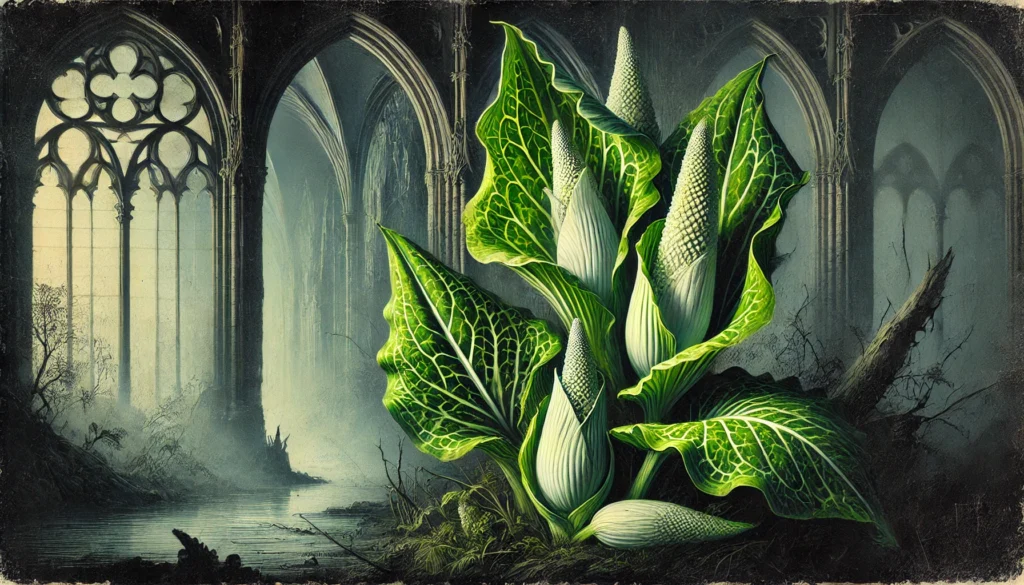

Home » Cat Plants » The Dangers of the Skunk Cabbage Plant to Cats

Skunk cabbage (Symplocarpus foetidus) is a plant that can be toxic to cats if ingested. While cats are not actually allergic to skunk cabbage, eating any part of this poisonous plant can cause serious health issues due to the plant contiaing calcium oxalate crystals.
Skunk cabbage is commonly found in wetland areas across eastern North America, often growing near streams, in swamps, and in damp woodlands.
Ingestion may cause mild gastrointestinal upset, but is generally not life-threatening.
Ingestion can result in mild symptoms like vomiting, diarrhea, or drooling. Rarely fatal but may require veterinary care.
Eating these plants can lead to more pronounced symptoms like abdominal pain, lethargy, or difficulty breathing. Veterinary intervention may be necessary.
Ingesting even small amounts can cause severe symptoms like organ damage, seizures, or cardiac failure without rapid treatment.
All parts of these plants are extremely poisonous to cats and can quickly lead to death, even with immediate veterinary care.
** Please note: Please note that toxicity level can vary based on the amount ingested and the specific cat. It's always best to keep these plants completely inaccessible to cats and seek immediate veterinary care or call the poison hotline if you suspect your cat has ingested any part of a toxic plant.
If a cat eats any part of a skunk cabbage plant, it may experience a range of uncomfortable and potentially dangerous symptoms. Some common clinical signs of skunk cabbage poisoning in cats include:
If you suspect your cat has ingested skunk cabbage, it’s important to seek veterinary care immediately. Your vet will likely follow these diagnostic steps:

A: Yes, Skunk Cabbage is toxic to cats. Ingesting it can cause oral irritation, drooling, and difficulty swallowing due to its toxic compounds like calcium oxalates.
A: If a cat eats Skunk Cabbage, it may experience vomiting, drooling, and a burning sensation in the mouth. Quick veterinary intervention is necessary to prevent more serious symptoms.
A: Yes, all parts of the Skunk Cabbage plant, including the leaves and stems, are toxic to cats. These parts contain harmful substances that can lead to poisoning if ingested.
A: Even small amounts of Skunk Cabbage can be harmful to cats. Ingesting any part of the plant can result in toxic reactions, so it is best to keep it out of reach.
A: Skunk Cabbage poisoning in cats is rarely fatal but can cause significant discomfort and health issues. Immediate treatment is essential to ensure recovery.
A: If your cat ingests Skunk Cabbage, contact your veterinarian right away. Early intervention is crucial to reduce the toxic effects and safeguard your cat’s health.
Skunk cabbage earned its name from the strong, foul odor it emits when its leaves are crushed or torn. This pungent smell is similar to that of a skunk’s spray.
The plant has a long history of use in traditional medicine by indigenous North American tribes, who used it to treat a variety of ailments like respiratory issues and joint pain. However, skunk cabbage contains calcium oxalate crystals which can cause severe irritation and inflammation, making it unsafe for use.
Please note: The information shared in this post is for informational purposes only and should not be considered as veterinary medical advice.
🐾 A hilarious or heart-melting cat video
🐾 Our latest paws-on review of a cool cat toy